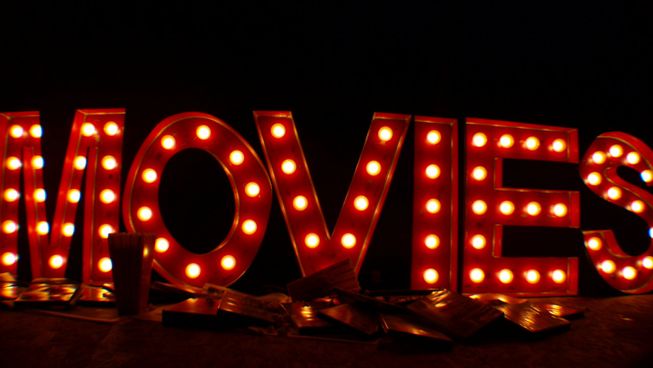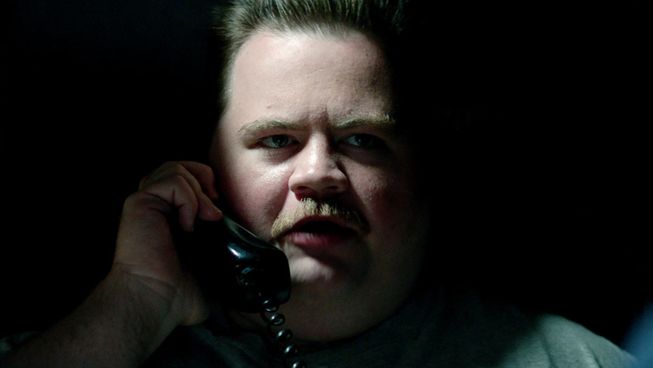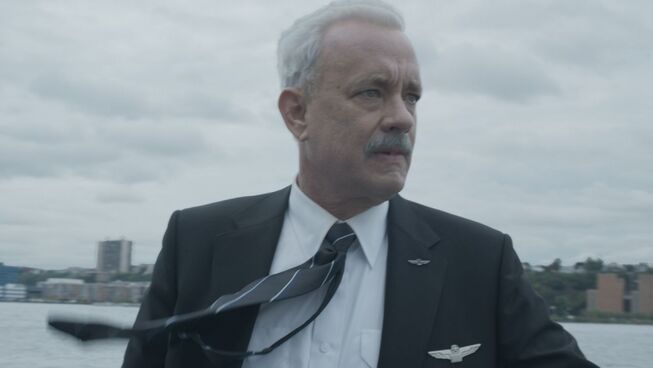
1.5 out of 5 stars
The unfortunate reality of this era is that most news headlines tend to be populated with terrorist events that have occurred somewhere in the world. This overexposure breeds a level of desensitisation to these issues and a failure to care. Even with the recent events that occurred on a train in Europe involving American servicemen, they quickly become another story lost amongst the plethora of other extreme acts that happen every day. What lifted this film out of all of the other news events? When Clint Eastwood decided to direct his latest film that focused on these three young men and then chose to have the actual heroes portray themselves during this project.
Similar to his recent film, Sully, the Academy-Award winning director attempts here to deliver a feature-length movie based on events that only lasted for a few minutes. The similarities are uncanny, except for the noticeable difference between his lead actors. Opposed to having Tom Hanks in the lead role, The 15:17 to Paris is reliant on the novice acting abilities of Anthony Sadler, Alek Skarlatos and Spencer Stone, who are three ordinary men with little acting skills. An experiment that turns this film into a docu-drama that looks at each step of their lives that lead them to the most significant event to occur in their ordinary existence.
Eastwood shows how this trio came to be friends and the impact that school, family, church and the armed forces had on moulding them into the young men they eventually would become. Eastwood manages to capture the struggles they experienced in life and how they ended up on the train that put them in the position of protecting 500 strangers from the gun-wielding Ayoub El-Khazzani (Ray Corasani).
Through the trailers and the lead up to this film, there was an expectation for a rousing dose of heroism, like seen in Sully or maybe a supercharged amount of patriotism as seen in American Sniper. Unfortunately, neither of these elements or any real entertainment value manifests itself in Eastwood’s latest endeavour, except for a brief moment during the final fifteen minutes.
Some of the problems come down to using non-actors in the lead roles, but even the actual professional actors in the film look as bored with this project as will anyone who attends. As an Eastwood fan, this is a difficult review to write, because the primary reason for the failure of this film comes down to the direction and writing. It is difficult to blame this catastrophe on anything except an inability to pinpoint the purpose of the film. Is it a docu-drama, a pseudo-Christian movie or a recruitment piece for the Armed Forces? In the realm of documentaries, directors have been filming real people in real situations for decades. These films manage to portray compelling individuals who may live ordinary lives but have found themselves in extraordinary circumstances. This technique is not utilised with The 15:17 to Paris, because it seems these young men were allowed to just ‘be themselves’ on set, but nothing in their lives makes for engaging cinema beside the incident on the train.
There is an attempt for the story to incorporate a faith-based element with the prayers of Spencer Stone added in for effect. The only challenge is that these words are compelling to hear, but they do not prove to be the driving force in the lives of these young men. Ironically, for all of the maligning that Christian films receive, they do a better job of conveying the message of Christian life than this film.
Taking the chance of putting these young heroes in the lead roles of their own story is brave risk, but unfortunately, it did not work. Society should acknowledge their willingness to put themselves in harm’s way for the sake of saving other lives, but a better way to honour their heroism might be to buy the book rather than going to see the film.
Reel Dialogue: What can I gain from this film?
1 Timothy 2:1-4 First of all, then, I urge that supplications, prayers, intercessions, and thanksgivings be made for all people, 2 for kings and all who are in high positions, that we may lead a peaceful and quiet life, godly and dignified in every way. 3 This is good, and it is pleasing in the sight of God our Saviour, 4 who desires all people to be saved and to come to the knowledge of the truth.
Many films celebrate the grand and exciting people of the world, but there is something to be said of the quiet life. In the film The 15:17 to Paris and in this short passage from the Apostle Paul, there is something to be said about the ordinary lives of people. Not all of us get a life in the spotlight, but that does not mean your life lacks value. Every life can be celebrated and gives way to a special connection with life and even God.






